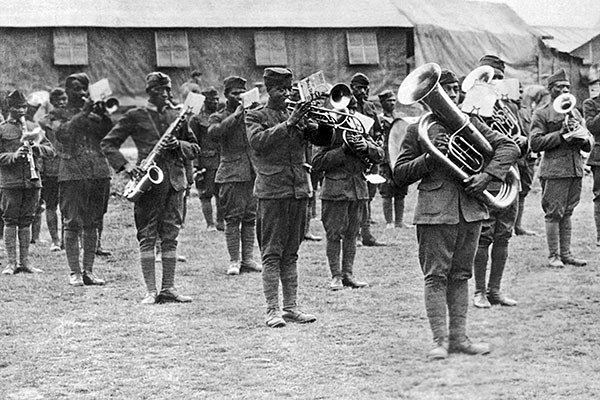Audencia Nantes dean Frank Vidal finds inspiration in Miles Davis

Roula Khalaf, Editor of the FT, selects her favourite stories in this weekly newsletter.
The first jazz concert in mainland Europe is thought to have been played not in a bohemian Paris cellar or a Berlin nightclub, but in Nantes, western France.
By a happy coincidence for me, as a jazz trumpeter as well as a dean, a group of black US soldiers performed in the city my school calls home at the end of the first world war.
While some dwell on the jazz world’s nocturnal sleaze, ego-fuelled infighting and the part drugs and drink have played in the downfall of some artists, I would make a case that there is much that a business school dean can learn from the jazz greats. And they do not come much greater than Miles Davis.
Nearly a quarter of a century after his death he is still the standard by which any so-called jazz genius has to be measured. However, defining Davis is no simple task.
To begin with, his output is so diverse. Like any top business school, and consequently any dean, he constantly reinvented himself, always looking to innovate and relate to a new generation. In this way, he was able to renew his music over more than 35 years, moving from bebop to cool and modal jazz and integrating electro and even rap. He never wanted to play the same thing twice.
Such relentless innovation makes Davis hard to label. He may be jazz by definition but his style could best be described as hybrid. Like the schools that today look beyond business to give their students individual, atypical profiles, he looked beyond jazz to include influences from diverse cultures. Truly international in outlook, he was one of the precursors of what we now call world music.
Davis was also a remarkable teacher, perhaps in spite of himself. Renowned for being extremely self-critical, he did not spare the feelings of those around him. Yet despite his sometimes unbearable moods, he fostered many young musicians who would later become stars, such as Herbie Hancock, John McLaughlin and Marcus Miller.

Besides teaching, he was an avid student, always seeking to learn. One example was his use of technology. When Davis began his career, musicians played live in the studio rather than recording parts individually and choosing the best take for an instrument, as is the norm today. He was one of the first to reject live studio recording and search for perfection through a multi-track approach.
To innovation we can add improvisation. I believe jazz corresponds well to what businesses should aspire to. It is based on a set series of chords and a theme that provide a solid base from which improvisation can evolve. However, to reach this level is not easy and requires years of dedication.
To improvise within any group, musical or otherwise, you must be a good listener. Your improvisation is guided by those around you. You need to be able to pick up the signals that will determine how and when your own solo will begin, develop and end.
Improvisation also entails a large dose of risk allied to a well-honed technique, especially in the case of the trumpet, a demanding instrument. Business school deans, even those who do not follow jazz, are more than likely to be able to identify with such an approach. The security of a solid base is what allows those moments of innovation and improvisation that can make a difference in the competitive management education market.
The love affair between France and jazz that began with that first concert in Nantes continued with Davis and many other US jazz giants. In the late 1950s and early 1960s, France welcomed Afro-American jazz musicians like no other country at a time when such players still sought recognition back home.
While in Paris, Davis recorded a magnificent original soundtrack for the film Ascenseur pour l’échafaud, a classic by French director Louis Malle, and fell for the chanteuse Juliette Gréco: a romance that could qualify as the jazz version of Romeo and Juliette. He met adulation wherever he went and for that reason, being aware of the danger of comfort zones, he returned to the US.
Davis never chose the easy path. He was motivated by challenges and pushed himself and others to surpass themselves, leaving behind a body of work that seems timeless in its appeal and influence. If that is not an ideal for a business-school dean to aspire to I do not know what is.
Frank Vidal is dean of Audencia Nantes School of Management.
Comments